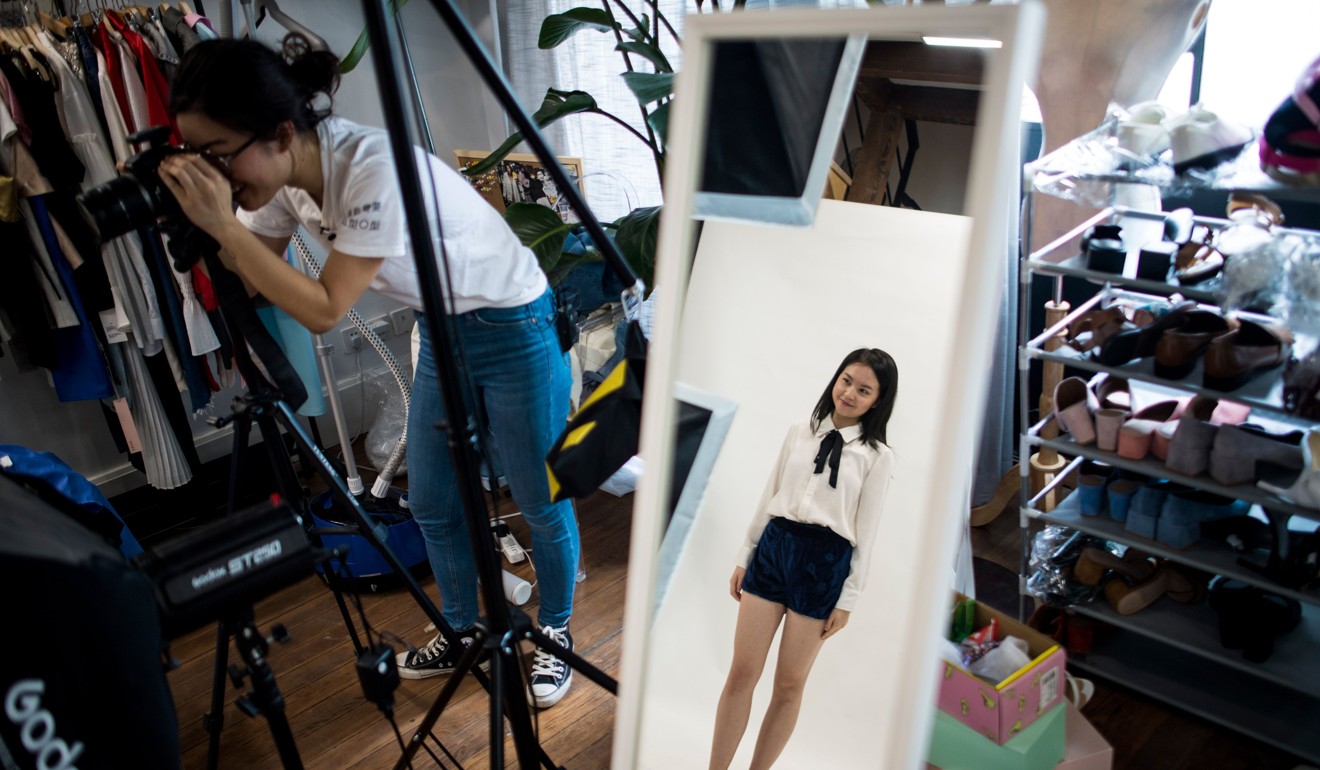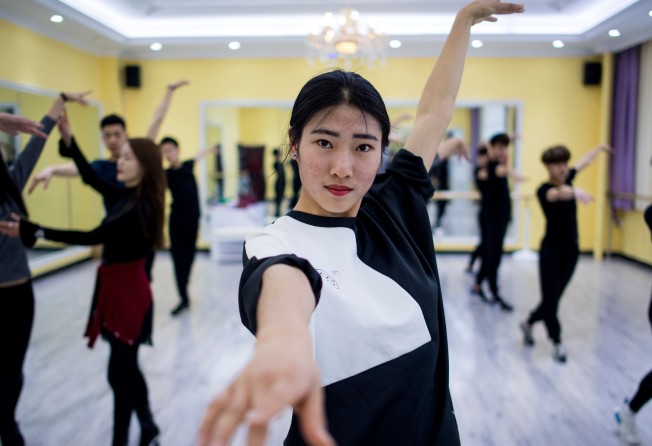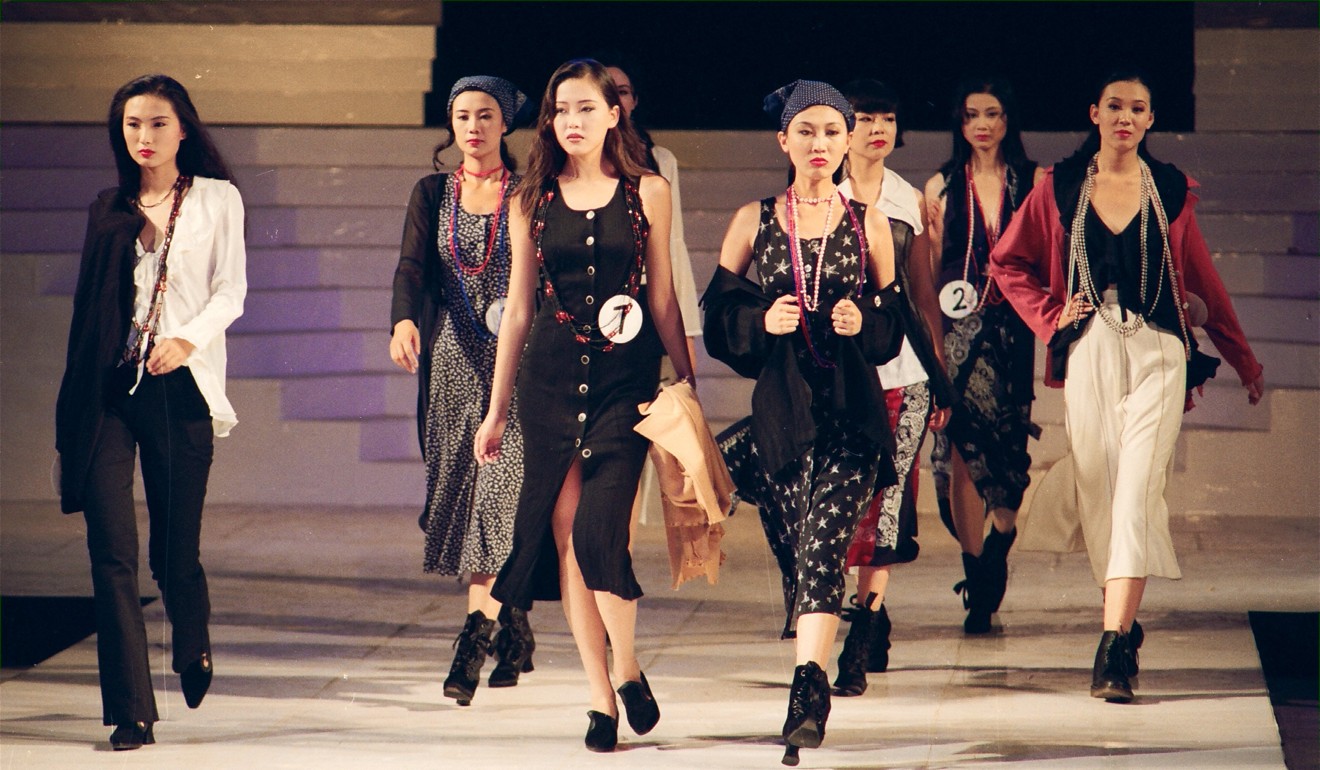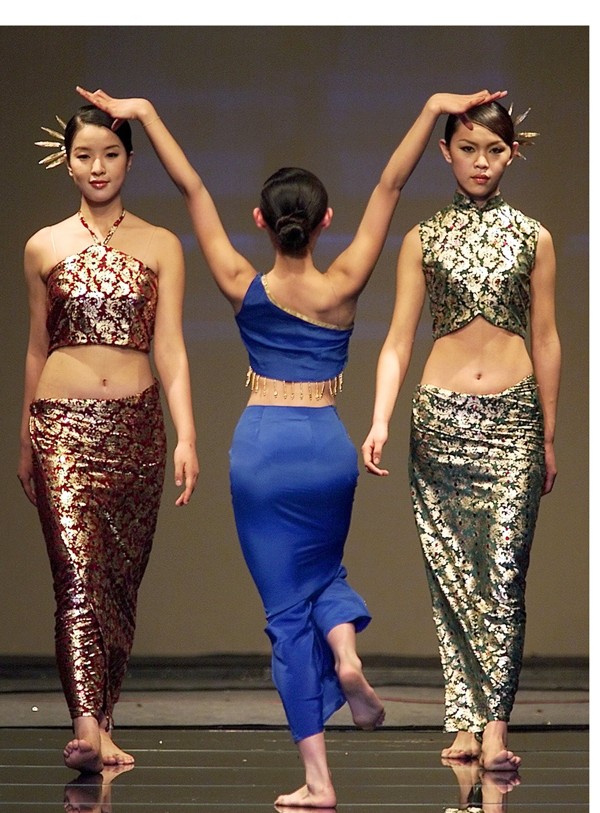
How young internet ‘celebrities’ are driving online retail
Internet starlets – sometimes catwalk models, or what are being referred to as ‘Wanghong’ – are believed to have generated US$8.68b in sales in 2016, US$1.5b more than China’s total box office

Alibaba is poised to unveil its quarterly results on Thursday, with its core e-commerce business estimated to register strong growth.
And the tech giant probably has someone to thank for that in particular – e-commerce internet celebrities, or what are being referred to as “Wanghong” in Chinese, literally hot on the web.
Alibaba, whose stock has soared 70 per cent in New York this year, , is tipped to post a 49 per cent jump in revenues for the first quarter ending June 30, mainly due to growth in e-commerce business, according to consensus estimates.
For the whole of fiscal 2016, transaction volume on Alibaba’s sites, including Taobao and Tmall, hit a jaw-dropping 3.1 trillion yuan (US$464 billion), about a tenth of China’s total consumption in 2015.

A significant force behind those results was Wanghong, who generated billions of yuan in sales of clothes and cosmetics to their fans.
Former magazine model and one of the most popular “Wanghong” at Taobao, 29-year-old Zhang Dayi gave a public speech to investors at Alibaba’s Investor Conference in June, telling the audience she sold 228 million yuan worth of clothing last year, generating 45 million in net profit.
She even set a Taobao sales record on November 11, selling 20 million yuan within 2 hours, as she live-streamed new arrivals at her stores to her 5 million fans.
One of her modelling rivals, Zhu Chenhui, 27, was another invitee to the conference.
She said her online clothing store “Lady Qian” generated 608 million yuan in sales last year, and she expected her store’s 2017 revenues to top 1 billion yuan.
Their levels of business are now starting to threaten foreign apparel giants’ online sales.
Nike’s Greater China, Hong Kong, and Taiwan revenues reached US$3.8 billion, or 25 billion yuan last year, for instance. The global sportswear giant doesn’t break out its China revenues, but it did say in 2015 its global e-commerce contribution ratio was around 3.9 per cent.

Using that ratio, Nike’s online sales for Greater China could have reached something like 975 million yuan – not that far north of Lady Qian’s.
According to Chinese data firm CBN Data , the Wanghong industry was worth 58 billion yuan (US$8.68 billion) in 2016, bigger than China’s total box office of 46 billion yuan in 2016.
“Zhang Dayi is just the tip of the iceberg in China’s e-commerce market,” wrote Tao Dong, managing director and chief economist for Credit Suisse in Asia, on his Sina blog recently.
“Ten years ago, it would be beyond imagination that a young woman, by using a digital platform, would be able to pull in such a crowd and generate sales the equivalent of a large business.”
Ten years ago, it would be beyond imagination that a young woman, by using a digital platform, would be able to pull in such a crowd and generate sales the equivalent of a large business
Tao added the digital and technology revolution has been “upending” commerce, resulting in structural changes in business models.
Zeng Ming, chief strategy officer for Alibaba, echoes that view, saying the “explosive growth” of Wanghong-led sales indicates some fundamental changes taking place in the retail world.
“Through creating an active social community to interact with customers, these online stars are upending traditional retailing, and are significantly improving the efficiency of retailing,” he said in a report earlier this month.
Zeng said the success of Wanghong is determined by three factors: online retailing platforms with massive numbers of users, frequent interaction between retailers and their fans and buyers, and most importantly, a “rapidly responsive” supply chain.
Alibaba owns the South China Morning Post.

“Based on direct, frequent online interaction with fans, Wanghong can have a more accurate estimation about how much to manufacture and how to control inventories, rather than speculating on the needs of customers, as traditional retailers have done in the past,” Zeng said.
In the southern provinces of Zhejiang and Guangdong, for instance, rapidly responsive supply chains have become the norm over the past decade, creating a more effective connection between suppliers and e-retailers.
“Wanghong’s hunger marketing and advance booking strategies require a fast supply chain, ” Zeng said. “After fulfilling advanced orders, they have to replenish stock within two weeks, otherwise fans will lose interest.”
Traditional apparel brands have four to six new launches per year, while Wanghong can push out new products as quick as every two to three weeks.
“The instant reactions of social networks, efficient online retailing platforms, and fast supply chains have contributed to surprising growth in e-commerce, ” Zeng said.
Eyeing the potential, Alibaba has invested 300 million yuan in the company Zhang co-founded, Ruhan Holdings.
Taobao also recently launched an online contest in search for the next “e-commerce superstar”, or Miss Tao.
The website set up a live-streaming channel for candidates, ranking them based on attention received and sales volume.